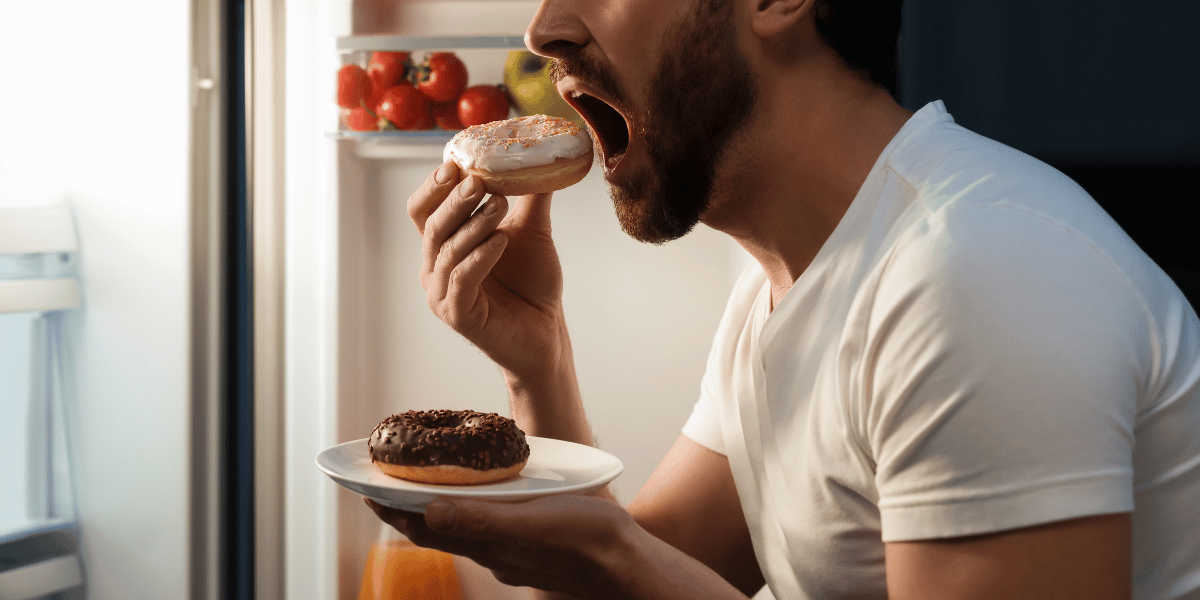1 min read
MCT Oil: What Is It, and How Can It Help with Fat Loss?
If you’re serious about maximizing your time in the gym by fueling your body with the nutrients it needs to perform at an optimum level, you’ve...
.png?width=70&height=70&name=Stark_LogoMark%20(1).png)

Join the conversation around the latest dieting trend, the OMAD diet, also known as "One Meal A Day." This approach has been capturing attention lately, with proponents claiming it can lead to successful weight loss. However, there are concerns about the potential negative impact on health, especially for those looking to improve their body composition in a healthy way. Explore the OMAD diet in-depth by discovering its principles, uncovering the alluring benefits that draw people in, and delving into the scientific evidence to evaluate its effectiveness. Get the facts and make an informed decision about this trending eating pattern.
The "One Meal A Day" diet is exactly what it sounds like- limiting yourself to consuming just one meal per day within a one-hour window. The idea behind it is that by giving your body a break from constant food intake, it can better regulate your energy expenditure and help you shed those extra pounds. There is no actual mention of food quality or quantity for this diet, meaning it is essentially an intermittent fast where you eat for 1 hour a day, and fast for the other 23.
The allure of this diet is understandable: in a world where healthy eating habits have become overcomplicated, this is a simple way to maintain a caloric deficit (aka you eat fewer calories than you burn), which leads to weight loss. You don't need any training or real nutritional knowledge to adhere to this diet. There are also claims that by following the OMAD diet, there may be potential benefits like improved insulin sensitivity and increased cellular self-cleansing, although these claims are speculative and do not have any evidence to support them.
Technically speaking, it could work. If the amount of calories in the one meal you eat in a day is lower than the number of calories you burn, you will in fact lose weight. Unfortunately, that is not actually as beneficial as you might think.
First, if the meal you are eating is a fast food burger with fries and a soft drink, there's a very good chance you will still be eating more calories than you burn in a day. This means that while you are only eating one meal, you would still gain weight, and likely be very hungry doing it! Second, the odds that you hit your protein goal in a one-hour window are near-zero. If this is the case, any weight loss on the scale will primarily be due to lost muscle mass, not fat mass. With body composition moving in the wrong direction, your body would also begin to burn fewer calories per day due to the decrease in muscle, so even if you see the scale trending down, your health and physique will be going down with it.Lastly, for the extremely rare few that would able to hit their protein goal with high-quality foods in a one-hour window, their calorie intake would likely be so low that it could put their body into starvation mode. Energy expenditure would decrease for conservation, fat loss would yield to a halt, and such an intense caloric deficit could actually result in their weight increasing! Unfair, yes, but the unfortunate reality of extreme dieting.
We don't need to go into the likelihood of adherence, the resulting nutritional deficiencies, or the hormonal dysfunction it would cause - the OMAD diet has no real health benefits. While the idea behind it isn't wholly inaccurate, the reality of implementing such a restrictive diet is significantly more detrimental to your health than helpful. Eating healthy doesn't have to be complicated- just eating 500 fewer calories a day will yield weight loss results, and hitting your daily protein goal of 1 gram per pound of body weight will ensure that the weight you lose is primarily fat (instead of water or muscle). And as always, if you want a bit more guidance when it comes to healthy eating habits, know that the nutrition team here at Stark is always happy to help!

1 min read
If you’re serious about maximizing your time in the gym by fueling your body with the nutrients it needs to perform at an optimum level, you’ve...

Embarking on the journey of muscle gain, individuals often encounter the intriguing yet controversial concept of "dirty bulking." This dietary...

If you’re serious about achieving your fitness goals and seeing results, chances are good that you’ve tried some form of diet and meal planning in...